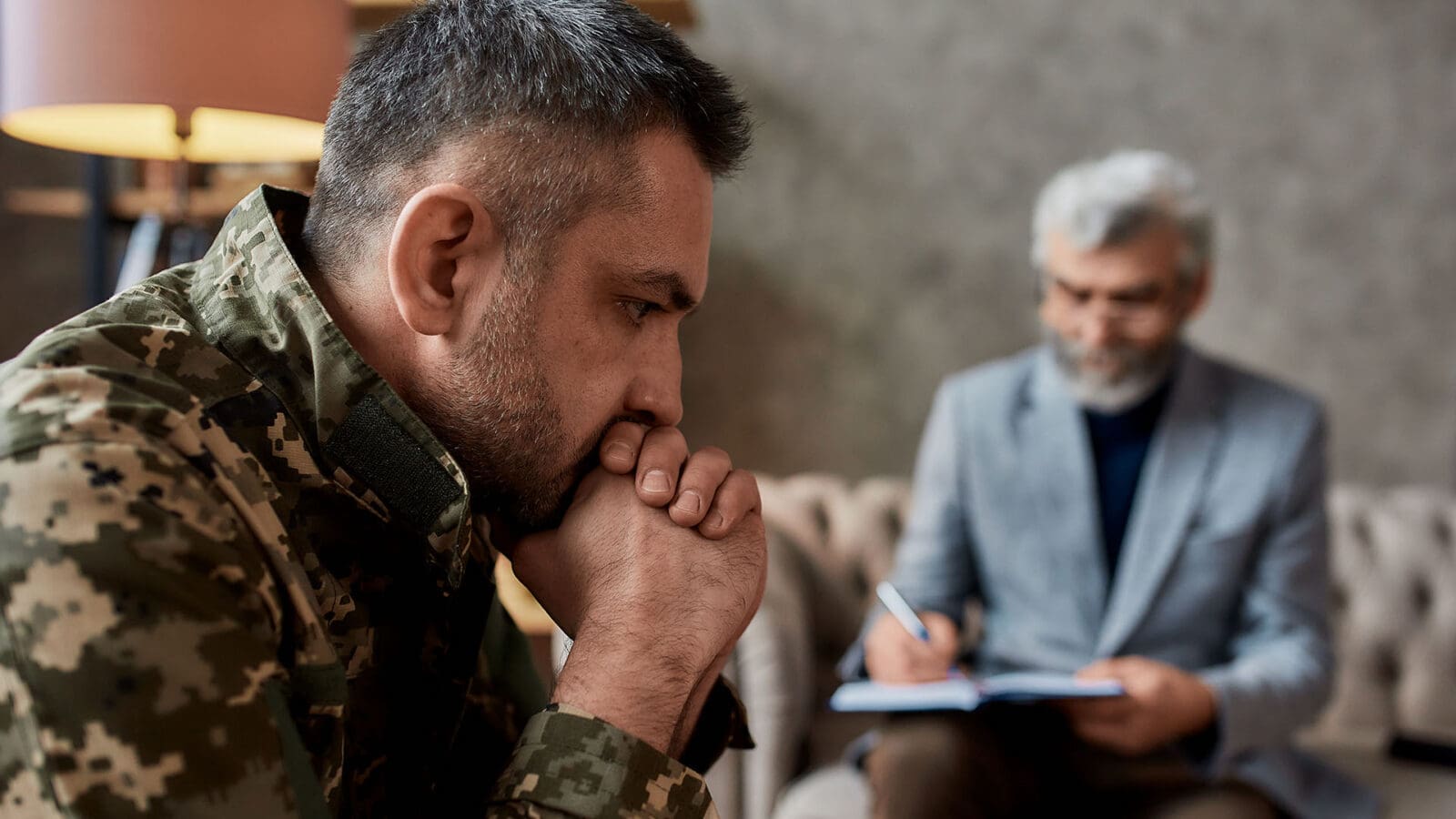Absolutely the best attorney for getting your VA benefits. After 7 years of denial, I found Brendan Garcia of VetLaw, He reviewed my case, set up a plan , scheduled my video hearing in front of a Veteran law judge, flew out to Phoenix to be there with me during the hearing. Hired a doctor to help draft a report to help my case. When all the smoked cleared, I’m now collecting max disability monthly, back pay beyond my wildest dreams. Brendan Garcia never stopped. He is an expert in Veterans law. Best decision of my life was to have him on my side. Bar none, Brendan is a terrific VA benefits attorney!
Veterans may suffer psychological disabilities as a result of their active duty military service. In fact, many former servicemembers report symptoms of schizophrenia after being discharged, which is a mental disorder that affects an individual’s perception and behavior.
Whether you need advice on filing a Supplemental Claim for benefits or filing your Notice of Disagreement on a recent denial, our attorneys can help. If the Department of Veterans Affairs (VA) refused to award entitlement to service connection for your schizophrenia claim, VetLaw’s diligent legal team can assist you in appealing the denial.
How Are Schizophrenic Symptoms Classified?
VA refers to the American Psychiatric Association’s Diagnostic and Statistical Manual of Mental Disorders (DSM-5) to determine which mental disorders qualify for disability benefits. This handbook classifies psychiatric disorders in common language and is used by members of the healthcare, legal, and legislative fields.
Schizophrenia can cause cognitive disturbances and may be difficult to diagnose because of the many symptoms it can present. There is no specific test to diagnose it, and doctors must carefully examine all a former servicemember’s symptoms to reach a conclusion. A veteran who is diagnosed with schizophrenia might suffer from the following conditions:
- Hallucinations
- Delusionality
- Unkemptness
- Difficulty speaking
- Gross disorganization
- Catatonic behavior
- Disturbed sleep patterns
- Dysphoric moods
- Social cognition deficits
- Hostility and aggression
Role of a Disability Rating
Moreover, an award of disability benefits from VA would depend on the severity of the recipient’s schizophrenia. 38 Code of Federal Regulations §4.130 provides a standardized method for VA staff members to categorize conditions of schizophrenia.
The varying degrees of severity are based on the overall impact of a mental disability on a former servicemember’s life. In order for a schizophrenia claim to be successful, the condition must be formally diagnosed and severe enough to either hinder a veteran’s ability to perform daily tasks or require ongoing medical treatment. The highest rating may be assigned to a condition that results in total impairment, both occupational and social, including symptoms such as persistent delusions or hallucinations, grossly inappropriate behavior, and inability to perform everyday activities. Lower ratings may also allow for a 100 percent rating to be assigned due to unemployability, by applying for a total disability rating based on individual unemployability (TDIU).
Proving Schizophrenia Claims
An applicant for VA disability benefits must demonstrate that their schizophrenia is the direct result of their active duty military service. If a veteran’s schizophrenia existed before they entered the military, they may also be able to establish that active duty service aggravated and worsened their pre-existing condition.
One of our steadfast lawyers can help a former servicemembers gather documents which indicate their reports of symptoms during active duty. We can also help veterans obtain useful medical records from VA doctors to strengthen their schizophrenia claims.
What Happens if a Schizophrenia Claim is Denied?
Unfortunately, it is not uncommon for schizophrenia claims to be denied by VA. For rejected claims, the next step is to file an appeal to challenge VA’s decision.
Claims denied on or after February 19, 2019 would require veterans to follow the procedure outlined in the Appeals Modernization Act (AMA). This law allows denied applicants to file a direct notice of disagreement on VA Form 10182 to request review by the Board of Veterans’ Appeals (BVA).
Otherwise, a veteran who was denied prior to February 19, 2019 must file a legacy Notice of Disagreement with a local VA office before their application can be reviewed by the BVA. A former servicemember seeking to overturn a benefits denial would find it helpful to consult a VA-accredited attorney who is familiar with obtaining service connection for schizophrenia.
Meet with an Attorney for More Information about Appealing A Veteran Schizophrenia Claim Denial
We can help you figure out what information to include as evidence of your disabling psychiatric condition and its connection to your active duty service. Having a member of VetLaw’s skilled team by your side can make a substantial difference in the outcome of your claim for disability compensation. Consult a VA-accredited lawyer as soon as possible to discuss the options available to you regarding a Supplemental Claim or the appeal of your veteran schizophrenia claim denial.










